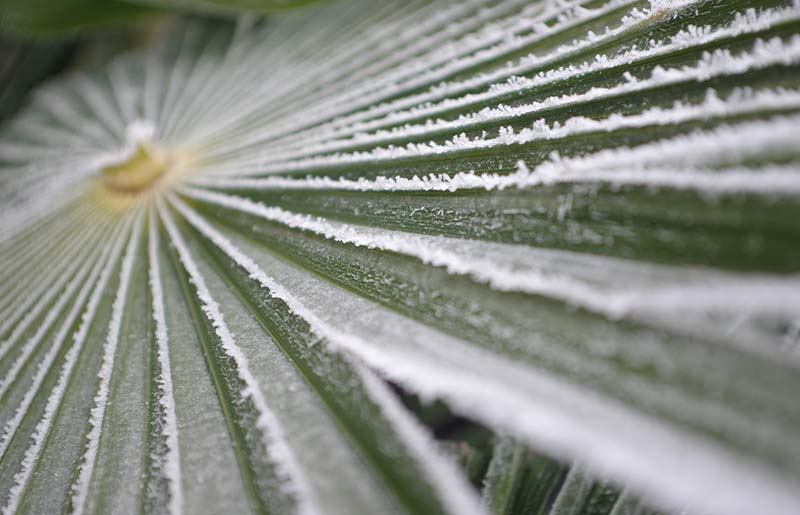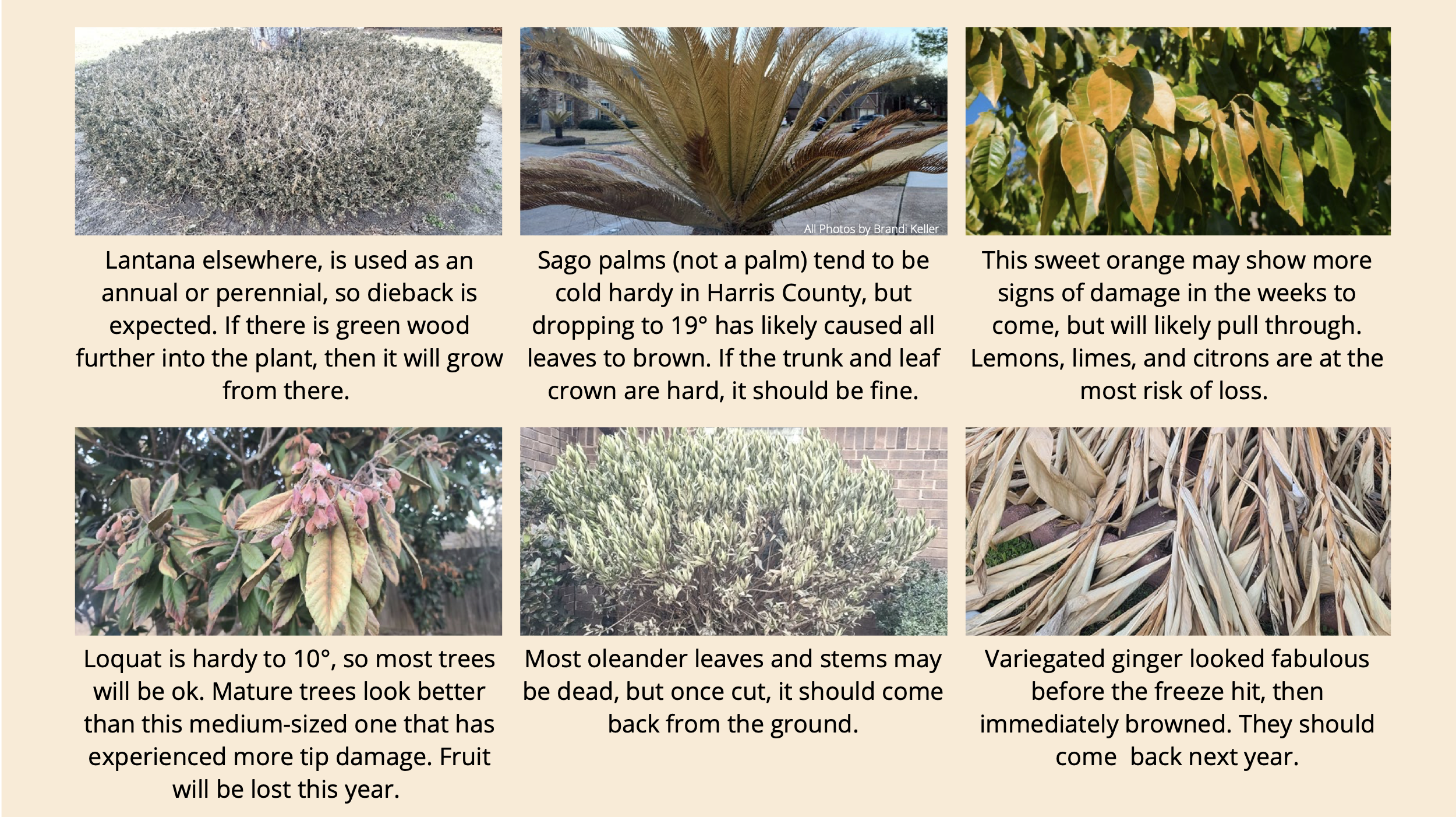
Local Gardening Experts Offer Post-Freeze Tips for Affected Plants
By Brandi Keller, County Extension Agent - Horticulture, Harris County Texas A&M AgriLife Extension Service
What do we do with our plants after the freeze? You've likely heard the answer a dozen times in the last week, but it's the only answer to give. Leave them be.
Freeze damage may appear immediately or show up weeks (even months) later. When a rare freeze does impact us, many are left wondering if our plants can be salvaged. First and foremost, do not prune them yet. If they are pruned, it creates a fresh injury that could be damaged by a another freeze. We've heard the phrase lately, "learn to like ugly," but beauty is in the eye of the beholder. It does not have to be ugly if we know it's giving shelter to critters that may need it, like our native Carolina (green) anole. These anoles tolerate colder temperatures better than the invasive Cuban Brown anoles, which may give them a slight advantage, finally.
This is truly a situation that forces us all to wait and see. Numerous variables come into play, like local temperature, location of planting, moisture at freeze, mulch or protection taken, and general hardiness. Tropical plants may appear dead, but come back from the ground. Woody plants are best left until they show new growth, then everything above can be pruned. What you can do now is remove very soft or mushy leaves to reduce risk of disease. Use the scratch test to see if there is live wood under the bark. Scratch or cut a small piece away from the branch. If it is green or white, it is alive. Brown indicates dead wood. By mid-March, risk of frost is over, so let the cleanup begin!

For specific questions and assistance, the community is invited to reach out to the Harris County Master Gardeners at their help desk. Assistance is provided to the public free of charge! More of a phone person? Call them at 71-274-0950.
Master Gardeners are volunteers for Texas A&M AgriLife Extension Service. They are trained by AgriLife Extension to assist Extension in reaching its mission to bring relevant, research-based information in horticulture to the public.
Master Gardeners certified in Harris County by AgriLife Extension can become members of the Harris County Master Gardener Association (HCMGA). HCMGA is a nonprofit, 501(c)3 incorporated association affiliated with the Texas AgriLife Extension Service in Harris County and the Texas A&M System.
To learn more about the Harris County Master Gardeners, visit hcmga.tamu.edu.





